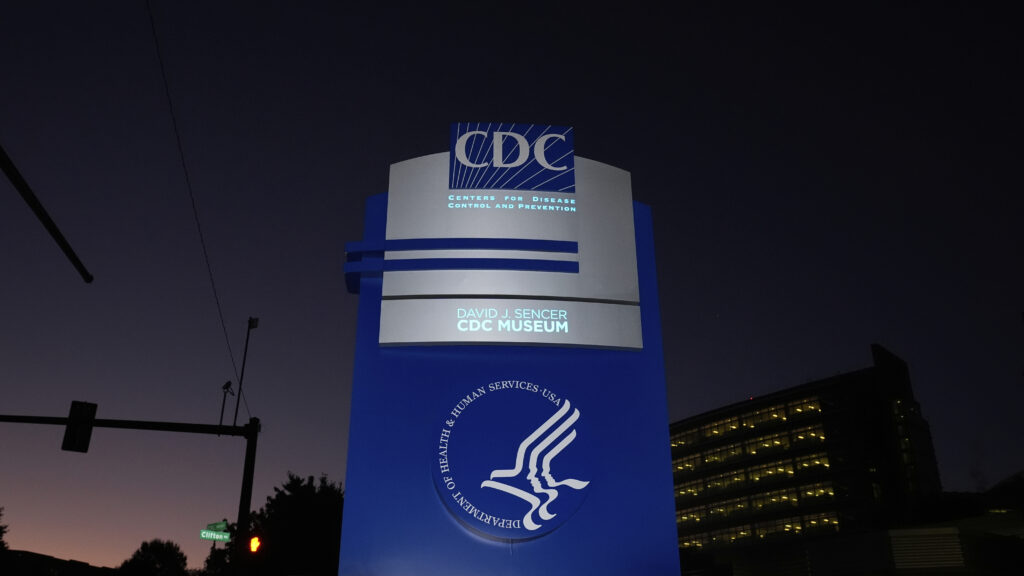Health
CDC Faces Setback as Key Health Survey Team Laid Off

The recent layoffs at the Centers for Disease Control and Prevention (CDC) have raised significant concerns about the future of vital public health data collection. In a drastic move last weekend, the CDC’s division within the National Center for Health Statistics (NCHS) responsible for overseeing the National Health and Nutrition Examination Survey (NHANES) lost all its planning staff. This survey is crucial for assessing the health and nutritional status of the U.S. population.
Unlike the 600 employees who were laid off across various disciplines but reinstated shortly after, the planners of NHANES did not receive similar reprieve. Their absence poses considerable challenges to the survey’s continuity, as highlighted by David Woodwell, the former chief of the planning branch. He stated, “It will be very, very difficult for the survey to continue with this group gone,” emphasizing the unique expertise required to manage day-to-day operations and collaborations with field contractors.
NHANES has been a cornerstone of U.S. health data for over 60 years, combining rigorous health measurements with questionnaire responses to offer insights into common diseases and lifestyle behaviors. Conducted in Hyattsville, Maryland, the surveys provide essential information that informs public health policies across various sectors, including nutrition, oral health, and environmental exposure.
The recent cuts reduced the NCHS workforce by approximately 100 employees, including all eight remaining planners in the NHANES branch. These individuals played vital roles, referred to by Woodwell as “boots on the ground,” ensuring the execution of health exams and interviews as well as planning future surveys.
The layoffs coincided with a government shutdown linked to stalled budget negotiations, during which President Donald Trump had threatened to fire federal employees. According to Andrew Nixon, a spokesperson for the Department of Health and Human Services (HHS), all employees affected by the layoffs were deemed non-essential by their respective divisions.
The implications of these layoffs extend beyond administrative disruptions. Information critical to understanding health services, hospitalizations, and emerging health trends may now be compromised. Denys Lau, the former director of a division tracking national health care provision, warned that the ability to monitor emerging outbreaks could be severely hindered.
The data collected through NHANES benefits not only federal agencies but also the public at large. While the survey’s primary aim is to gather comprehensive health data, it also provides immediate benefits to participants, such as identifying undiagnosed conditions like hypertension or diabetes through health screenings.
Looking ahead, concerns are mounting about how the NCHS will maintain its mandate to produce objective, nonpartisan data. The elimination of the communications office raises questions about the integrity of future reports, which previously underwent rigorous review processes. As Lau pointed out, changes in how data is processed and disseminated could introduce political influences that compromise public trust.
Lau and his colleague Jennifer Schoendorf, former NCHS director of research and methodology, expressed their worries about the potential loss of insights into pressing health issues like obesity and nutrition. They noted that the elimination of experienced staff diminishes the center’s capacity to respond effectively to health concerns prioritized by health officials.
The impact of these layoffs on the CDC’s overall functionality is yet to be fully understood. Lau articulated a critical metaphor, stating, “The RIFs may have left some parts of NCHS intact, but a car cannot drive missing a tire or the steering wheel.” The cuts have left a significant void in a department that has historically played an instrumental role in shaping public health outcomes in the United States.
As the fallout from these layoffs continues to unfold, the public health community is urged to recognize the importance of the work done by the individuals behind NHANES and the invaluable data it generates. The future of public health in America may depend on how effectively the CDC can navigate this challenging landscape.
-

 Lifestyle5 months ago
Lifestyle5 months agoLibraries Challenge Rising E-Book Costs Amid Growing Demand
-

 Sports4 months ago
Sports4 months agoTyreek Hill Responds to Tua Tagovailoa’s Comments on Team Dynamics
-

 Sports5 months ago
Sports5 months agoLiverpool Secures Agreement to Sign Young Striker Will Wright
-

 Lifestyle5 months ago
Lifestyle5 months agoSave Your Split Tomatoes: Expert Tips for Gardeners
-

 Lifestyle5 months ago
Lifestyle5 months agoPrincess Beatrice’s Daughter Athena Joins Siblings at London Parade
-

 Science4 months ago
Science4 months agoSan Francisco Hosts Unique Contest to Identify “Performative Males”
-

 World4 months ago
World4 months agoWinter Storms Lash New South Wales with Snow, Flood Risks
-

 Science5 months ago
Science5 months agoTrump Administration Moves to Repeal Key Climate Regulation
-

 Business5 months ago
Business5 months agoSoFi Technologies Shares Slip 2% Following Insider Stock Sale
-

 Science5 months ago
Science5 months agoNew Tool Reveals Link Between Horse Coat Condition and Parasites
-

 Sports5 months ago
Sports5 months agoElon Musk Sculpture Travels From Utah to Yosemite National Park
-

 Science5 months ago
Science5 months agoNew Study Confirms Humans Transported Stonehenge Bluestones









